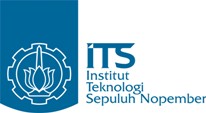Design Analysis of the Hydraulic System for Containerized Oil Boom
Abstract
Keywords
Full Text:
PDFReferences
D. S. Etkin, “Modeling oil spill response and damage costs.” Freshwater spills symposium 2004. United States Environmental Protection Agency, Washington, D.C., USA. 2004.
M. F. Fingas, “The basics of oil spill cleanup.” 3rd Edition. Taylor and Francis Group, Boca Raton, Florida, USA. 2012.
P. Herrington, G. Ball, and K. O’Halloran. “Aquatic ecotoxicity of cutback bitumen.” Land Transport New Zealand, Wellington, New Zealand. 2006.
Marine Pollution 73/78
American Petroleum Institute. “Oil spill response: options for minimizing adverse ecological impacts.” American Petroleum Institute, Washington, D.C., USA. 1985.
British Columbia Ministry of Environment (BC-MOE). “British Columbia marine oil spill response plan.” Provincial document. British Columbia Ministry of Environment, Victoria, British Columbia, Canada. 2013.
International Energy Agency (IEA). “World Energy Outlook 2010.” International Energy Agency, Paris, France. 2010.
T. Nyman, “Evaluation of methods to estimate the consequence costs of an oil spill.” SKEMA Seventh Framework Programme, Athens, Greece. 2009.
A. Nelson-Smith, “Oil pollution and marine ecology.” Plenum, New York, USA. 1973
Port Metro Vancouver. “Tanker traffic: oil tanker movement.” Port Metro Vancouver, British Columbia, Canada. 2013.
M. Boulton, “Financial vulnerability assessment: who would pay for oil tanker spills associated with the Northern Gateway pipeline?” University of Victoria, Environmental Law Centre, Victoria, British Columbia, Canada. 2010.
British Columbia Government. “Requirements for British Columbia to consider support for heavy oil pipelines.” Provincial document. British Columbia Government, Victoria, British Columbia, Canada. 2012.
Conversations for Responsible Economic Development. “Assessing the risks of Kinder Morgan’s proposed new Trans Mountain pipeline.” Conversations for Responsible Economic Development, Vancouver, British Columbia, Canada. 2013.
E. J. Danielson, “A study of the economic impact of the Deepwater Horizon oil spill - Part 3: public perception.” Greater New Orleans, Inc., New Orleans, Louisiana, USA. 2011.
David Suzuki Foundation. “Oil spill scenarios.” Video. David Suzuki Foundation, Vancouver, British Columbia, Canada. 2013.
DOI: http://dx.doi.org/10.12962%2Fj25481479.v5i2.5466
Refbacks
- There are currently no refbacks.
 |  |  |  |
| |  |  |
|
|
|
|
|
P-ISSN: 2541-5972
E-ISSN: 2548-1479
IJMEIR journal published by Department of Marine Engineering, Faculty of Marine Technology, Institut Teknologi Sepuluh Nopember Surabaya Indonesia under licenced Creative Commons Attribution-ShareAlike 4.0 International Licence. Based on https://iptek.its.ac.id/index.php/ijmeir/


1.png)
